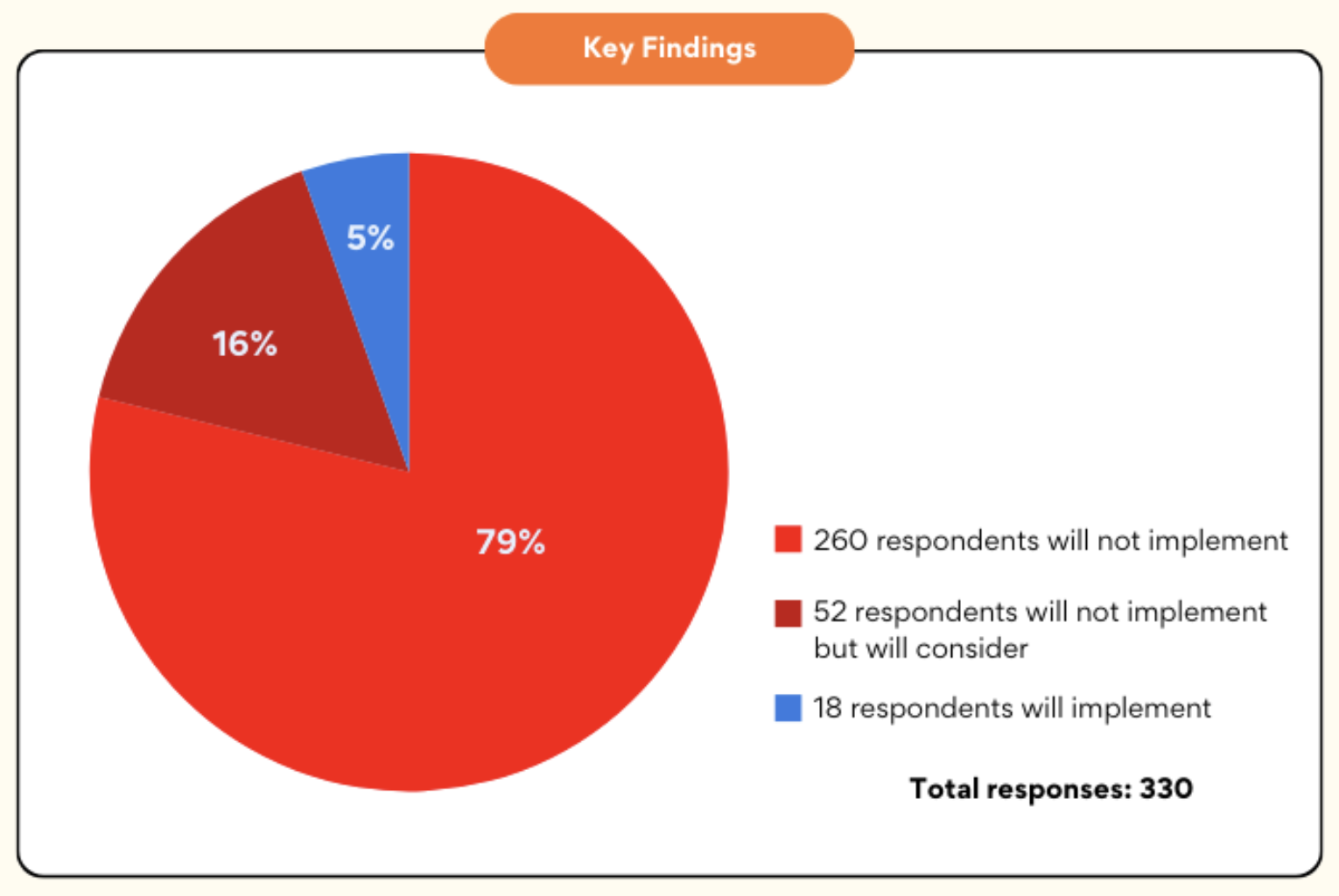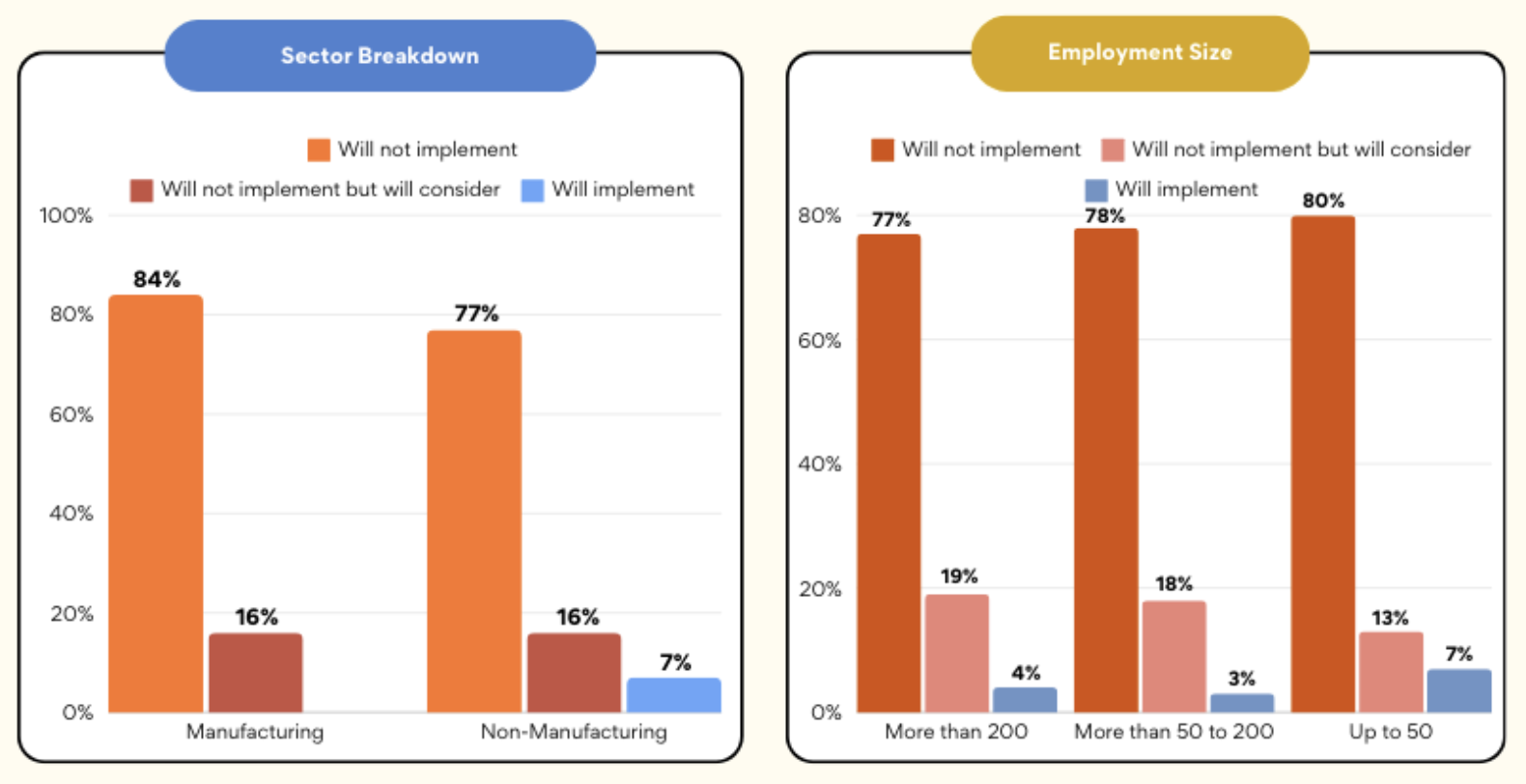
Operational feasibility holding employers back from implementing short workweek arrangement

An overwhelming majority of employers in Singapore will not implement a four-day work week for their organisation, citing operational feasibility and productivity concerns.
The poll, released by the Singapore National Employers Federation (SNEF), garnered 330 respondents to find that 95% have no plans to reduce working hours to up to 36 hours weekly without cutting pay.
This includes 79% of employers who have no absolute intentions of adopting the work arrangement, and 16% who said they will not implement it but will consider, according to the poll.

Source: Singapore National Employers Federation
By sector, 84% of manufacturing businesses and 77% of non-manufacturing businesses indicated that they have no plans to implement a four-day work week.
By employment size, opposition against the work arrangement was also revealed to be across the board.

Source: Singapore National Employers Federation
Business operations has emerged as the top-cited reason why employers are not implementing a four-day work week, as some noted that their organisations operate 24/7.
The second-highest reason is because they're unable to increase productivity to offset the reduction in capacity. Other reasons against a four-day work week include:
Sim Gim Guan, Executive Director at SNEF, said the findings reflect the realities employers face amid the tight labour market and competitive business environment.
"While a small proportion of employers are in favour of implementing a four-day work week in their organisation, our findings indicate that for most employers, the operational feasibility and economic implications make it a challenging proposition to meet their business needs," Sim said in a statement.
On the other hand, the top reason cited by the five per cent who said they will implement a four-day work week is to strengthen the company's employees' value proposition.
Other reasons include:
The four-day work week arrangement has been gaining traction across the world as more flexible working arrangements emerge post-pandemic.
In 2022, a Qualtrics study found that 64% prefer having flexibility in the workplace over a four-day work week. However, 87% of employees said they would support their organisation should they adopt the arrangement, citing its benefits for work-life balance, mental health, and productivity.